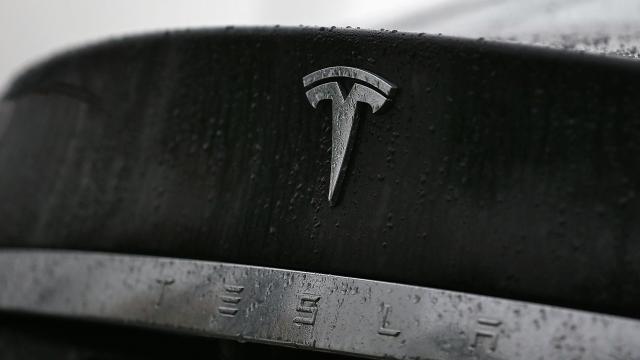With the production of next-gen batteries growing near, Teslas will soon round another corner in its race to put range anxiety in the rearview mirror. Panasonic will reportedly begin mass-producing new lithium-ion batteries as early as 2023 that could increase EV range by up to 20%, according to a Nikkei report.
The 4680 cell (46mm x 80mm) is twice as large as the previous generation but brings a fivefold increase in capacity, so you can use fewer cells and get more juice. As the report notes, the new cells would increase the Model S’s range from about 650 kilometers, about 652 km, to 750km, or 748 km.
Better yet, the batteries are 10-20% cheaper to produce, and since you don’t need to use as many, could lead to lower EV prices (batteries make up about 30% of the cost of an EV, according to Nikkei). Tesla CEO Elon Musk said last year that the next-gen cells are six times more powerful and reduce cost-by-kWh by 14%.
While EVs are steadily flooding the market, high prices are preventing them from going mainstream, and the least expensive electric cars — the Nissan Leaf, Mini Cooper SE, and Chevy Bolt — fall short of 483 km of range. Tesla’s Model 3 was meant to bring electric vehicles to the masses but price hikes have brought the base model to $US45,000 ($62,469).
Panasonic, the main supplier for Tesla’s pricier models, is reportedly investing 80 billion yen, or about $US704 ($977) million, in new equipment to produce the batteries at its Wakayama prefecture plant. That single factory is said to be making enough capacity to outfit 150,000 EVs, or about 20% of Panasonic’s overall production capacity.
Panasonic will start making small batches of these batteries as early as March this year to ensure their safety before entering mass production in 2023 and potentially expanding manufacturing to other countries thereafter. In a statement to Reuters, Panasonic declined to comment on Nikkei’s report.
“We are studying various options for mass production, including a test production line we are establishing this business year,” the company said. “We don’t, however, have anything to announce at this time.”
Along with using Panasonic-made batteries, Tesla has plans to produce its own in-house solutions and reduce its reliance on external partners. However, Musk said in September last year that the leading EV maker plans to increase purchases from Panasonic, LG Chem, and CATL, but warned of “significant shortages” in 2022 and beyond unless the company augments those batteries with its own.
Musk expects Tesla to start producing its own 4680 cells sometime this year and to ship the first EVs — starting with the Model Y — powered by those batteries in 2022. Tesla’s next earnings call, on Jan. 26, should offer some more clarity into the company’s upcoming products.
